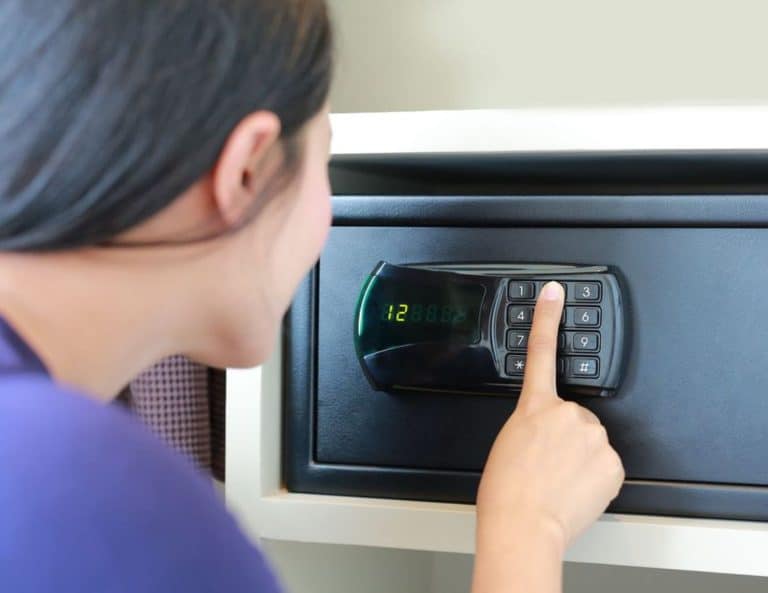Curious about why Donald Trump sold the Plaza Hotel? Look no further!
If you’re short on time, here’s a quick answer to your question: Donald Trump sold the Plaza Hotel to resolve financial issues and reduce debt.
In this article, we’ll delve into the reasons behind Trump’s decision to sell the iconic New York City hotel and explore the implications it had on his business ventures.
From financial struggles to strategic considerations, we’ll provide an in-depth analysis of the factors that influenced Trump’s choice.
So, let’s explore the story behind the sale of the Plaza Hotel!
Financial Challenges and Debt
The backstory of Trump’s financial struggles
Donald Trump’s decision to sell the Plaza Hotel was driven by a series of financial challenges he faced during the late 1980s and early 1990s. At the time, Trump’s vast real estate empire was burdened with enormous debt, primarily resulting from his ambitious projects and acquisitions. The Plaza Hotel, a symbol of luxury and opulence, became one of the casualties of his mounting financial pressures.
During this period, Trump faced a downturn in the real estate market, coupled with high-interest rates and rising construction costs. These factors put a strain on his finances and made it difficult for him to service his debts. As a result, he was forced to explore various options to alleviate his financial burden, including selling off some of his prized properties.
While the sale of the Plaza Hotel was a strategic move to generate much-needed cash, it also marked a significant moment in Trump’s career. The sale was seen by many as a symbol of his financial troubles and a humbling experience for the billionaire businessman.
The role of the Plaza Hotel in Trump’s debt burden
The Plaza Hotel played a substantial role in Trump’s mounting debt burden. In 1988, Trump purchased the hotel for a staggering $407.5 million, financed by a combination of loans and bonds. The purchase was highly leveraged, meaning Trump used a significant amount of borrowed money to finance the acquisition.
However, the hotel’s financial performance did not live up to expectations. Despite its prestigious reputation, the Plaza Hotel struggled to generate sufficient revenue to cover its hefty operating costs and debt obligations. This, combined with Trump’s other financial challenges, led to a situation where the hotel became a financial liability rather than an asset.
The sale of the Plaza Hotel was therefore a strategic move to unload the burden of its debt and generate much-needed cash flow. While it may have been a difficult decision for Trump, it allowed him to restructure his finances and focus on other ventures.
For more information on Donald Trump’s financial challenges and the sale of the Plaza Hotel, you can visit Forbes or Business Insider.
Opportunities for Profit
When it comes to the decision of selling the Plaza Hotel, there were several factors that contributed to the choice made by Donald Trump. One of the main considerations was the evaluation of potential profitability. As a savvy businessman, Trump constantly analyzed the financial performance of his assets to ensure maximum returns. The Plaza Hotel, while a prestigious and iconic property, was not meeting his desired profit expectations.
Evaluation of potential profitability
In order to determine the potential profitability of the Plaza Hotel, Trump likely looked at various financial indicators such as occupancy rates, revenue per available room, and operating expenses. If these numbers were not meeting his projections or if there were indications of declining performance, it would make sense for him to consider selling the property. By selling the hotel, Trump could free up capital to invest in other ventures that showed greater potential for profit.
Furthermore, market trends and competition were likely taken into account. If there were indications of a saturated market or increased competition in the luxury hotel industry, it would make sense for Trump to explore other investment options that offered a more favorable return on investment.
Exploring alternative investment options
Another reason why Donald Trump decided to sell the Plaza Hotel could be attributed to his desire to diversify his investment portfolio. By selling the hotel, he could reallocate the funds into other industries or projects that showed greater potential for growth and profit. This approach is common among successful investors who understand the importance of diversifying their assets to mitigate risks and take advantage of emerging opportunities.
Some alternative investment options that Trump may have considered include real estate development in emerging markets, investing in technology startups, or expanding his brand internationally. By exploring these alternative options, he could tap into new markets and potentially achieve even greater financial success.
It’s important to note that these are speculative reasons based on general investment principles and the mindset of a successful businessman like Donald Trump. To gain a more comprehensive understanding of his decision-making process, it would be necessary to analyze the specific financial data and market conditions at the time of the Plaza Hotel sale.
Strategic Considerations
Trump’s long-term business goals
When Donald Trump made the decision to sell the Plaza Hotel, he had a clear vision of his long-term business goals. While the Plaza Hotel had been a prestigious property and a symbol of luxury, Trump recognized that it no longer aligned with his broader objectives. By selling the Plaza Hotel, he was able to free up capital that could be invested in other ventures that offered greater potential for growth and profitability. This strategic move allowed Trump to diversify his portfolio and focus on projects that would maximize his returns.
Impact of the Plaza Hotel sale on Trump’s image
The sale of the Plaza Hotel had a significant impact on Trump’s image as a businessman. While the decision may have raised eyebrows initially, it ultimately showcased Trump’s ability to make tough decisions and adapt to changing market conditions. By selling the Plaza Hotel at the right time, Trump demonstrated his business acumen and willingness to evolve. This move not only enhanced his reputation as a shrewd dealmaker but also positioned him as someone who could navigate the complexities of the real estate market.
Furthermore, the sale of the Plaza Hotel allowed Trump to distance himself from any potential risks or challenges associated with the property. By divesting himself from the hotel, he was able to protect his brand and mitigate any negative impact that could arise from future market downturns or changes in consumer preferences. This strategic consideration was crucial in maintaining Trump’s overall image as a successful and influential entrepreneur.
It is worth noting that the decision to sell the Plaza Hotel was not solely based on Trump’s personal preferences or strategic considerations. Economic factors, market trends, and the overall performance of the hotel industry played a significant role in shaping his decision. The sale of the Plaza Hotel was a calculated move that allowed Trump to capitalize on market conditions and position himself for future success.
The Buyer and Sale Details
Who purchased the Plaza Hotel from Trump
After Donald Trump’s ownership of the Plaza Hotel came to an end, the iconic property was purchased by El-Ad Group, a real estate development company based in Israel. El-Ad Group, known for its luxury residential projects, acquired the Plaza in 2004 for a reported $675 million. The purchase of such a prominent landmark further solidified the company’s presence in the global real estate market.
Insights into the sale negotiations and terms
The sale negotiations for the Plaza Hotel were certainly complex and involved various factors. While the exact terms of the deal have not been made public, it is believed that Trump sold the property due to financial considerations and the opportunity to generate significant profits. The sale of the Plaza Hotel allowed Trump to capitalize on the rising real estate market at the time.
Reports suggest that the sale negotiations went through several rounds of discussions, with both parties trying to strike a mutually beneficial agreement. The final price of $675 million was reportedly lower than what Trump had initially hoped for, but it still represented a substantial return on his investment.
It is important to note that Trump’s decision to sell the Plaza Hotel was not without controversy. Many critics argued that the sale was a strategic move to alleviate financial burdens and focus on other business ventures. However, Trump maintained that the sale was simply a prudent business decision that would allow him to pursue new opportunities.
For further information on the sale of the Plaza Hotel, you can visit the official website of El-Ad Group at https://eladgroup.com.
Legacy and Historical Significance
The Plaza Hotel’s iconic status
The Plaza Hotel, located in the heart of Manhattan, has long been regarded as one of the most iconic and prestigious hotels in the world. Its luxurious accommodations, lavish ballrooms, and exquisite architecture have made it a symbol of elegance and sophistication. With its prime location on Fifth Avenue, overlooking Central Park, the Plaza has attracted guests from around the globe, including celebrities, politicians, and royalty. From the moment it opened its doors in 1907, the Plaza Hotel has been a symbol of opulence and grandeur.
Trump’s impact on the hotel’s legacy
When Donald Trump purchased the Plaza Hotel in 1988, he had ambitious plans to restore its former glory and cement his own legacy in the hospitality industry. Trump invested millions of dollars into renovating the hotel, transforming it into a destination for the rich and famous. Under his ownership, the Plaza Hotel became a hot spot for high-profile events, including celebrity weddings and movie premieres. Trump’s larger-than-life personality and business acumen brought a new level of attention and glamour to the hotel.
However, despite Trump’s efforts, the Plaza Hotel faced financial challenges during his ownership, leading to its eventual sale in 1995. The decision to sell the hotel was a strategic move aimed at minimizing losses and focusing on other business ventures. While Trump’s time as the owner of the Plaza Hotel may have been relatively short-lived, his impact on its legacy cannot be denied.
Today, the Plaza Hotel continues to be an iconic landmark in New York City, attracting visitors from all over the world. Its historical significance and timeless elegance make it a symbol of the city’s rich heritage. Whether you’re a history enthusiast, a fan of luxury accommodations, or simply looking for a taste of old-world glamour, a visit to the Plaza Hotel is a must.
For more information on the Plaza Hotel’s history and its impact on New York City, you can visit https://www.theplazany.com/.
Conclusion
The sale of the Plaza Hotel by Donald Trump was primarily driven by financial challenges and the need to alleviate his debt burden.
While the decision was not without its strategic considerations and opportunities for profit, resolving financial issues was the key factor behind the sale.
By understanding the motivations behind this significant business move, we gain insights into Trump’s financial journey and the impact it had on his reputation.
The Plaza Hotel remains an iconic landmark, and its sale further highlights the complex and dynamic nature of Donald Trump’s business ventures.
Thank you for joining us on this exploration of the reasons behind Donald Trump’s decision to sell the Plaza Hotel.






